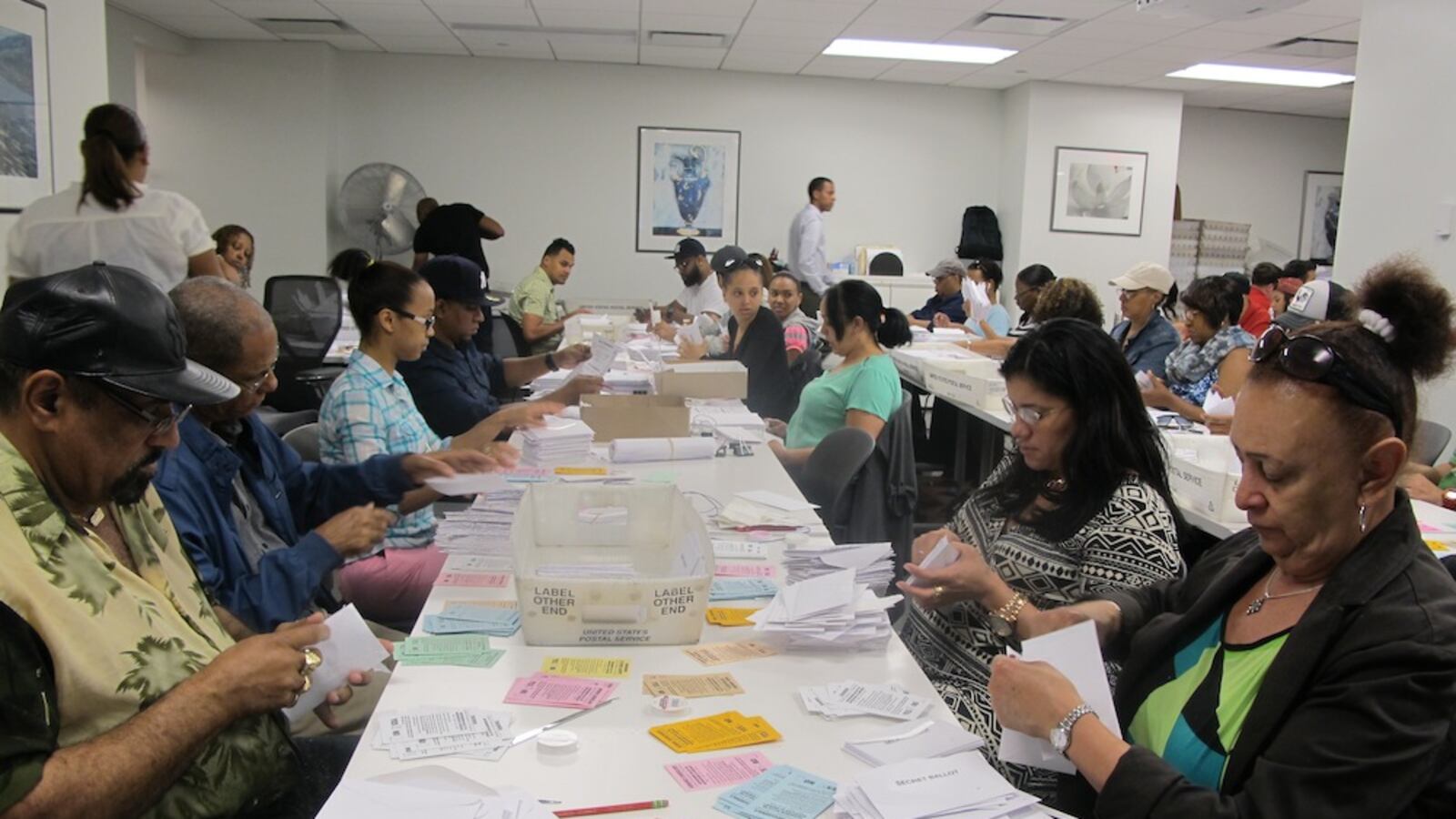The rank-and-file of the city teachers union voted to approve a new contract deal with the city, officials announced Tuesday, delivering long-awaited wage increases to educators and a victory to a new mayor who has pledged to improve the school system by partnering with the union.
The contract was endorsed by more than 77 percent of United Federation of Teachers members, which includes paraprofessionals, guidance counselors, secretaries, and others in addition to teachers. About 75 percent of the nearly 64,000 teachers who voted approved the deal.
The nine-year contract agreement gives teachers an eventual 19.5 percent raise, when compounded, along with retroactive pay, which teachers will receive in installments spread out over several years. In return, the union has agreed to reduce health-care costs by over $1 billion, though it is still unclear how the savings will be achieved. Many teachers have criticized the way the retroactive raises and back pay will be disbursed and worried that union members will be forced to pay for the health-care savings.
The contract introduces a number of new initiatives, including ones that would allow schools to redesign their schedules, top teachers to take on more duties for higher pay, and parents to interact more often with educators. It also simplifies the way teachers are rated and replaces time for student tutoring with time for teacher professional development.
“I believe this is a watershed moment for our school system,” Mayor Bill de Blasio said Tuesday.
Voter turnout was high, perhaps because teachers had gone so long without casting a ballot. Union officials said 90,731 ballots were cast and counted, the highest in its history. By comparison, approximately 78,000 ballots were counted in 2006, when 91 percent of union members voted to ratify the contract.
UFT President Michael Mulgrew said he was “ecstatic” at the margin by which the contract passed.
“The teachers of New York City are at an all-time low in morale,” Mulgrew said, after addressing members of the negotiating team at UFT headquarters. “They’re at an all-time low in morale and yet they overwhelmingly voted to approve this contract.”
The contract includes a number of provisions that will change how teachers are paid and school days are structured.
It establishes three new positions that would give teachers additional responsibilities in exchange for extra pay ranging from $7,000 to $20,000. The city will also be able to chose “hard-to-staff” schools that serve low-income communities and where teacher turnover has been high, where teachers will be eligible for $5,000 bonuses.
“We are going to help good educators stay and grow in this profession, and usher real reform that will lift up kids across the whole system,” de Blasio said.
The contract includes time allotted for teachers to work with each other and with parents, but reduces time previously reserved for specifically for small-group instruction. The contract will also allow a set number of schools to apply to be released from certain contract rules but held accountable to new performance targets, while acting as innovation incubators for the rest of the school system.
Some critics have argued that the innovation program will not give schools enough freedom to experiment and have questioned whether replacing tutoring with professional-development time for teachers will benefit students. Those critics, including ones that frequently clash with the union, attacked new protections in the contract for educators in the Absent Teacher Reserve pool, who do not have permanent placements but draw full salaries.
“Instead of delivering the real reform that students need, kids got a shorter school day and the return of ineffective teachers from the ATR pool,” said Jenny Sedlis, executive director of StudentsFirstNY. “This squandered opportunity will be a defining legacy of Mayor de Blasio’s term.”
In a statement, members of MORE, a opposition group within the union, said they too were disappointed by the contract’s ratification.
“Different titles of teachers, with different pay and different expectations, will now be created and over ten percent of our schools will operate outside of UFT contractual rules and DOE regulations,” they said, referring to the 200 slots for schools in the innovation program. “This creates a union membership increasingly divided against itself and members who will have even less of a reason to stand together in solidarity.”
Maritza Narvaez, a pre-kindergarten teacher at P.S. 239 in Queens, said she welcomed the deal even if it does not give educators everything they sought.
“Something is better than nothing,” she said, noting the pay hike and new professional opportunities. “We’re being recognized for our hard work.”
Mary Ellen McIntire contributed reporting.

